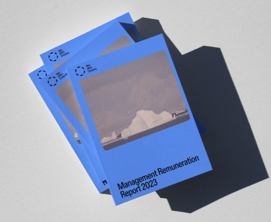With the pet industry continuously innovating, the search for new functional ingredients is on the rise.
A new publication from Aker BioMarine unveils that the choline levels of Alaskan Huskies increased by 52 percent after receiving a krill dietary supplement for six weeks.
Choline is an essential nutrient for dogs that impacts healthy brain development, muscle function, heart health, liver function as well as the nervous system. Like humans, dogs can produce choline; however, not enough to meet all their body’s requirements. A dietary supplement is vital to avoid choline deficiency.
In 2018, a dog sled team of 20 Alaskan Huskies took part in a six-week trial to investigate if the inclusion of phosphatidylcholine from Antarctic krill can increase the concentration of choline and its metabolites in the plasma of sled dogs. Krill is a crustacean related to shrimp and contains natural choline in the form of phosphatidylcholine.
Commenting on the study, Lena Burri, Director R&D Animal Health and Nutrition, Aker BioMarine says: “We conducted the study in collaboration with dog sled champion Thomas Waerner, winner of both the Femund and Finnmark race in 2019. Twenty of his high-performing sled dogs were separated into two groups. The first group received 8 percent of a proprietary krill dietary supplement, whereas the second team of ten dogs received a control diet without krill.”
The results demonstrated a significant increase of choline and its metabolites in the group that received krill supplementation compared to the control group.
“This is especially interesting for dogs in a long-lasting race setting when a drop in plasma choline is expected as seen in humans. As choline is important for nerve transmission and muscle function, a decline might negatively affect the performance of these dogs, says Burri.”
She adds: “Furthermore, the dogs were higher in betaine, a product of choline thought to promote muscle function in humans, and showed significantly reduced homocysteine, an amino acid know to have a negative effect on heart health.”
Tonje Elisabeth Dominguez, Director QRILL Speciality Animal Products explains the importance of choline for dogs.
Choline is often added as choline chloride or as betaine in dog food. In comparison, the choline found in krill is in form of phosphatidylcholine and is from a natural source. Previous studies have demonstrated that choline in the form of phospholipids is 12 times more efficient in raising blood choline concentrations compared to choline chloride.
“As we know, choline is an essential nutrient providing a wide range of health benefits for both pets and humans. The positive results from this study encourages us to further research and develop the effects for active dogs, says Tonje Elisabeth Dominguez, Director QRILL Speciality Animal Products.
The importance of choline

